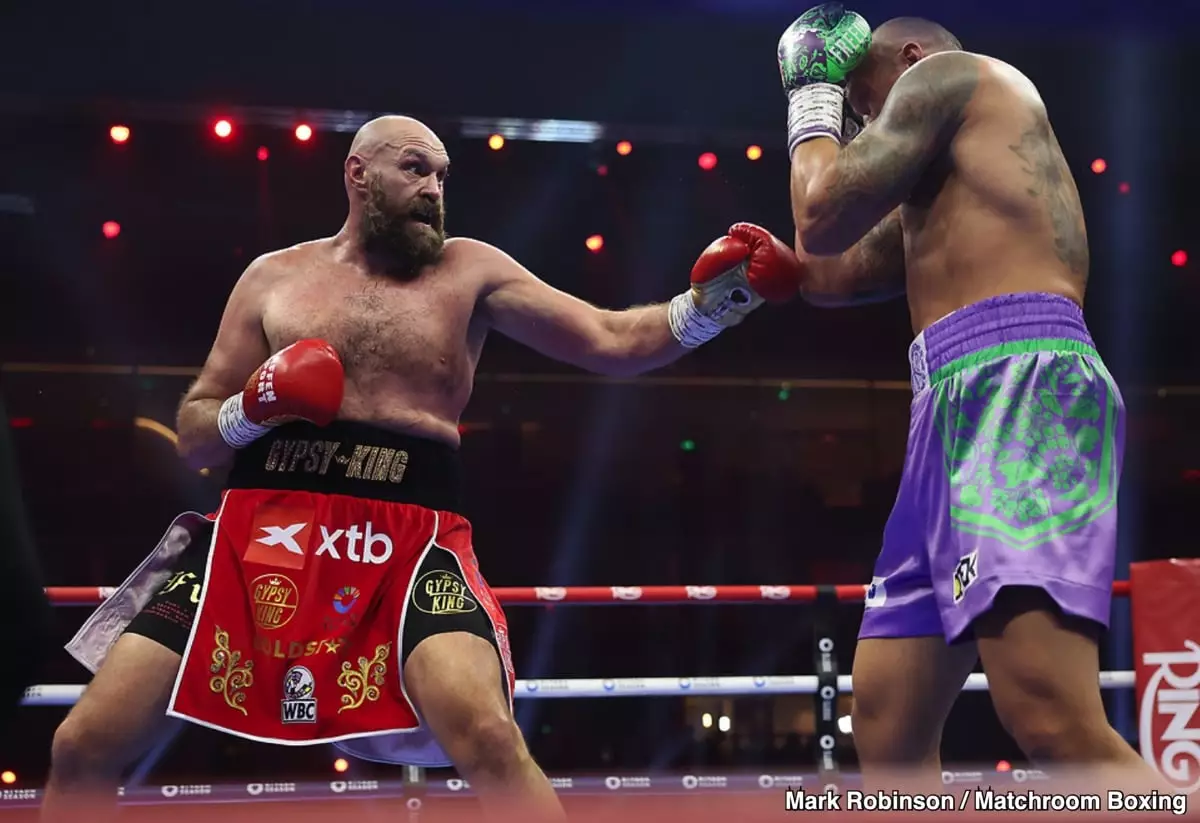The heavyweight boxing scene is in a state of tumult following Oleksandr Usyk’s decisive victory over Tyson Fury last Saturday night in Riyadh. Many fans and pundits alike are left wondering about Fury’s future in the sport. Promoter Frank Warren has publicly stated he stands behind Fury’s choices, particularly if the Gypsy King decides to hang up his gloves following this latest setback. While a retirement announcement may seem plausible in the aftermath of a significant loss, the allure of a possible high-stakes bout with Anthony Joshua still appears to serve as a strong motivation for Fury.
Tyson Fury has remained adamant about wanting a showdown with Joshua, a match that has been anticipated for years within British boxing circles. Despite Fury’s lackluster performance against Usyk, British fans’ enthusiasm for a clash with Joshua hasn’t waned. The prospect of such a contest is tantalizing enough that many are ready to purchase pay-per-view tickets, even if the fighters’ recent performances have been less than stellar. However, for the event to attract a larger audience, it will likely require either a compelling undercard or a more economical price point, especially when faced with international viewers who may be less invested in the fighters’ legacies.
Fury’s loss to Usyk, marked by a unanimous decision that left some fans scratching their heads, has further fueled discussions about his career trajectory. For the second time, he appeared to be outmaneuvered and outworked throughout the match, leading to a score of 116-112 across the board. Frank Warren, however, contested the judges’ verdict, asserting that Fury should have been awarded the win. Such claims reflect the ongoing narrative of boxing, where the subjective nature of judging can often leave fans divided over outcomes, particularly in major fights.
Warren’s comments highlight a profound respect for both Fury and Joshua, suggesting they no longer have anything left to prove in the ring. He emphasized their significant contributions to boxing, stating, “They’ve had outstanding careers… They’re financially secure.” This commentary raises pertinent questions about the motivations behind continuing a career in boxing, especially when both fighters have amassed considerable wealth and accolades. Warren also noted that Fury had previously retired only to return shortly after, hinting at the complexities involved in a fighter’s decision to retire—one that is often influenced as much by ego and passion as it is by financial considerations.
As Tyson Fury stands at a pivotal point in his career, the heavyweight division itself seems ripe with uncertainty. The future of the sport hangs in the balance, depending on whether these champions choose to pursue bouts that fans long for, or if they embrace retirement after storied careers. For now, the narrative surrounding Fury invites further speculation about the decisions that lie ahead, reflecting the intricate interplay between personal ambition, fan expectations, and the realities of professional boxing. Ultimately, whether Fury steps back into the ring or decides to walk away, his legacy in the sport will be forever shaped by these decisions.

